How to Remember What You Learn in Music Lessons: Fun & Practical Tips for Students and Parents
Struggling to retain what you learn in music lessons? This blog offers fun, practical strategies for students and parents to make music learning stick. From smart practice techniques to memory-boosting tips, discover how to improve faster and enjoy the journey! 🎶✨
LEARNING STRATEGIESSKILL DEVELOPMENT
How to Remember What You Learn in Music Lessons: Fun & Practical Tips for Students and Parents
Let’s be real—music lessons are a blast, but have you ever left thinking, "I totally get this!" only to forget half of it by the time you sit to practice? Students, you’re not alone. Parents, we know you’re wondering how to help your child hold on to what they’ve learned. The truth is, remembering your lesson isn’t about having a superhuman memory—it’s about having the right tools and habits. The best part? These strategies are simple, effective, and (dare we say) fun!
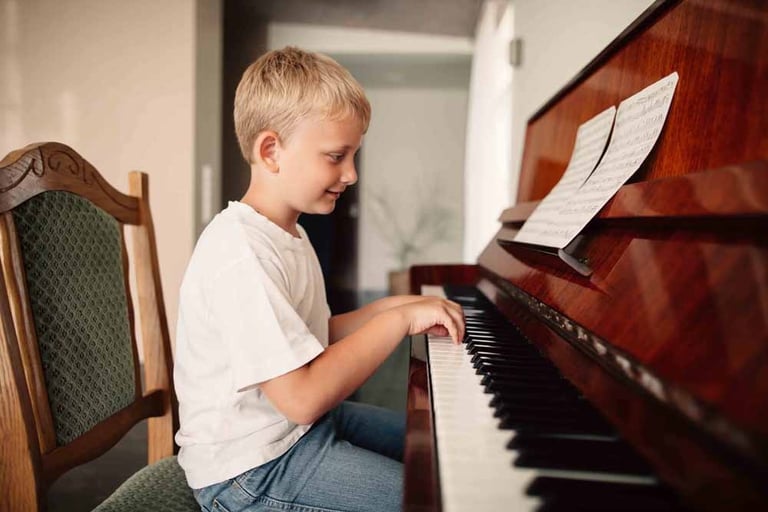

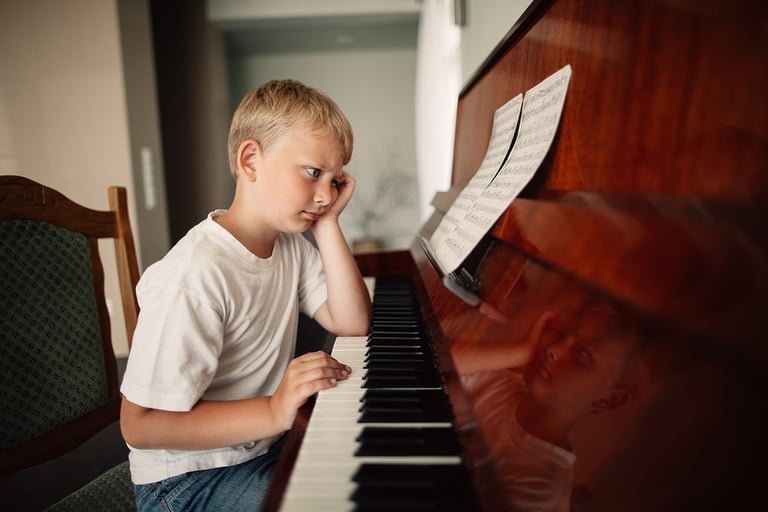

What? This makes no sense ⁉️
I totally get it! Aha💡
🎵 1. Notes Aren’t Just for School—They’re a Music Superpower!
Why It Works: Writing things down helps reinforce learning by engaging multiple parts of the brain. When you jot down notes, you're translating auditory and physical learning into a visual reminder, making it easier to recall later.
Students, think of your lesson notes as a treasure map that guides your practice. Instead of relying on memory alone, write down practice tips, fingering tricks, and reminders of those "aha" moments. Not a fan of writing mid-lesson? No worries! Spend five quick minutes after your lesson scribbling down what you remember.
Parents, why not make this a routine? Ask your child, "What’s one cool thing you learned today?" and help them note it down. Bullet points work wonders—keep it short, sweet, and easy to glance over during practice.
Quick Tip: Write specifics like “Practice bars 5–8 at 60 BPM with dynamics” instead of “Work on my piece.” Clear instructions = smoother practice.
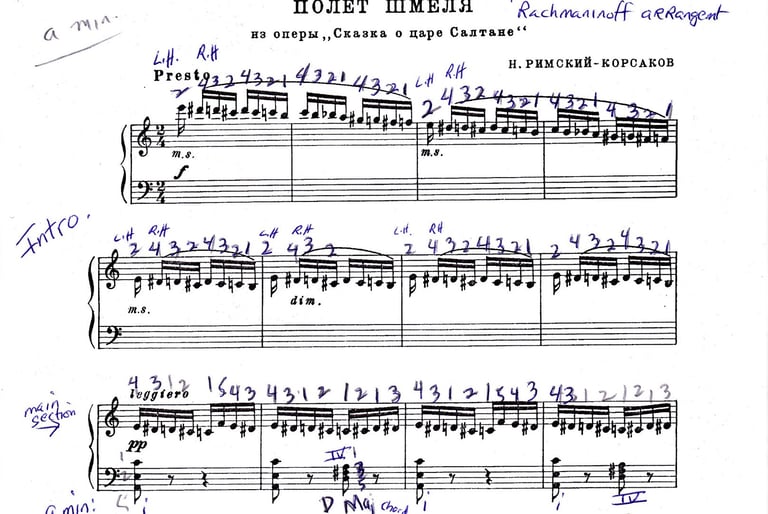

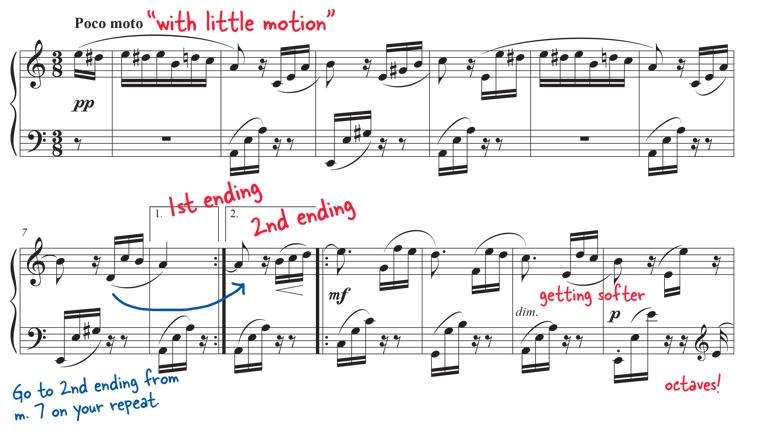

📱 2. Record It - Your Future Self Will Thank You
Why It Works: Listening back to instructions engages auditory memory, which strengthens retention. Watching a recording of yourself playing also allows you to assess your progress and refine your technique.
Ever wish you could replay what your teacher said? Guess what—you can! (As long as you ask permission first.) Recording your lesson lets you revisit instructions, tricky rhythms, or that magical moment when your teacher played the piece perfectly.
Students, try watching yourself play—it’s like having a personal coach. Parents, playing the recording during practice can spark "Oh yeah! That’s what I was supposed to do!" moments.
Fun Challenge: Can you spot what you did better the second time around? Reward yourself when you do!


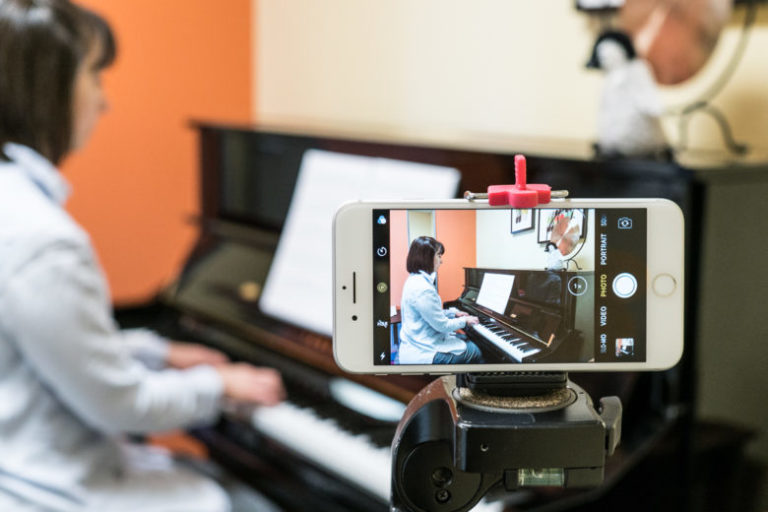

🕒 3. The 24-Hour Magic Window
Why It Works: Research shows that reviewing information within 24 hours significantly improves retention. The brain strengthens new pathways when the material is reinforced soon after learning.
Students, try this—within a day, spend just 10-15 minutes playing through what you learned. It helps your brain lock in the information.
Parents, turn this into a mini post-lesson ritual. Even a quick chat on the way home like, "Show me how that new song starts!" can make a difference.
Pro Tip: Practicing sooner = less frustration later. Trust us on this one.
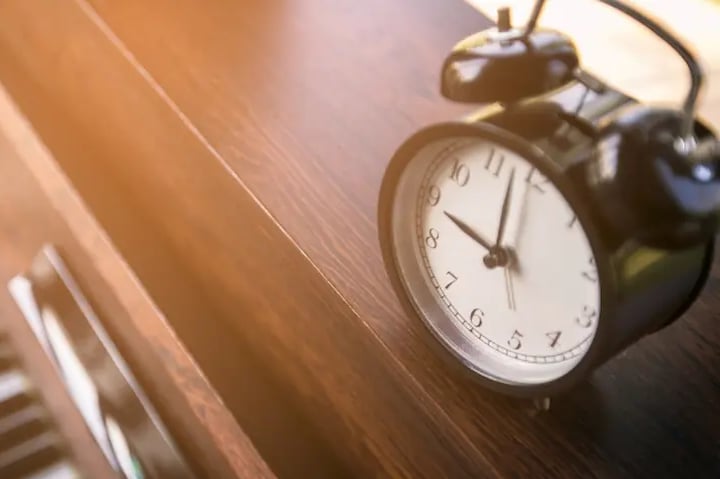

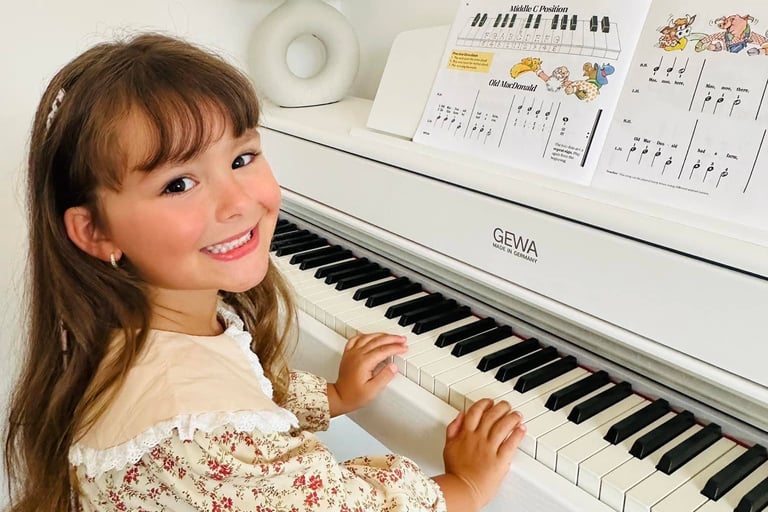

🗓️ 4. Practice: It’s Like Brushing Your Teeth (But More Fun)
Why It Works: Regular, short practice sessions build muscle memory and reinforce neural connections. Cramming before a lesson leads to inefficient learning and frustration.
Raise your hand if you’ve ever crammed the night before a lesson. (No judgment—we’ve all been there!) But honestly, short daily practice beats marathon sessions every time.
Students, 15-20 minutes a day is your golden ticket. Warm up, tackle tough spots, and end with something you love playing. Parents, consistency is key. Help set a regular time—right after homework, before dinner, or whenever works best.
Parent Hack: Create a fun practice chart. Stickers for every session? Yes, please!
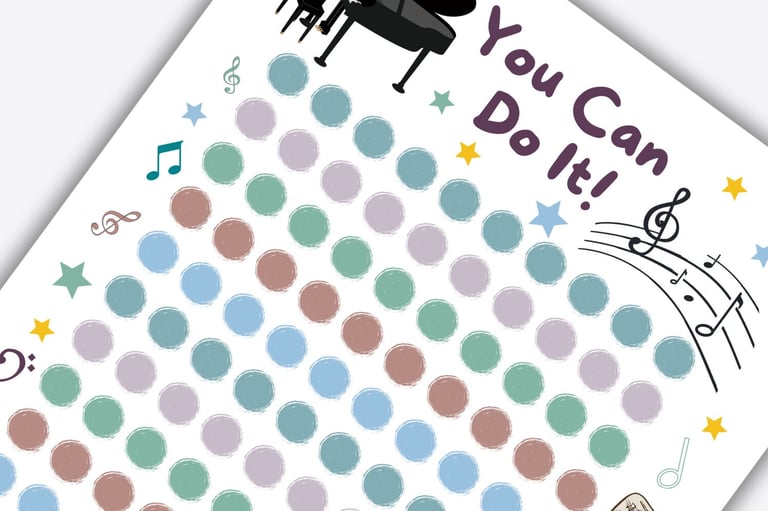

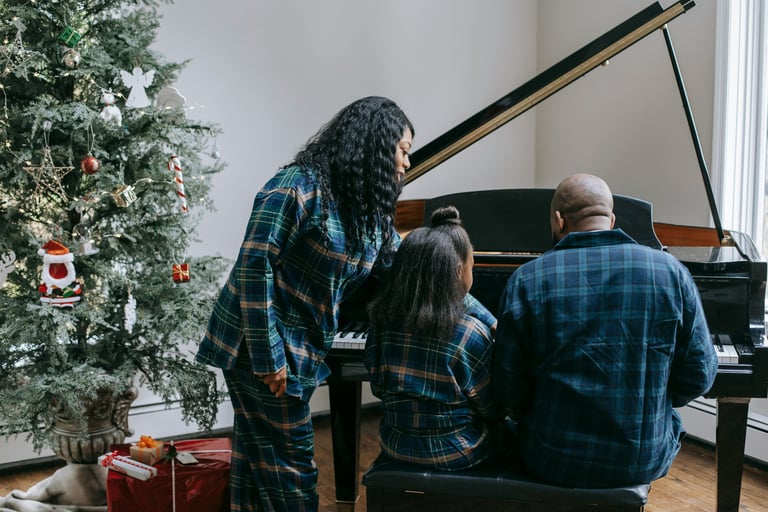

🔍 5. Small Bites, Big Wins
Why It Works: Breaking a piece into smaller sections reduces cognitive overload and allows for focused improvement. Mastering small sections leads to greater confidence.
Trying to conquer an entire piece at once? That’s like eating a whole pizza in one bite—messy and overwhelming.
Students, break your music into sections. Focus on a few tricky bars and celebrate when you nail them.
Parents, cheer those small victories. "Wow, you totally crushed that hard part!" goes a long way.
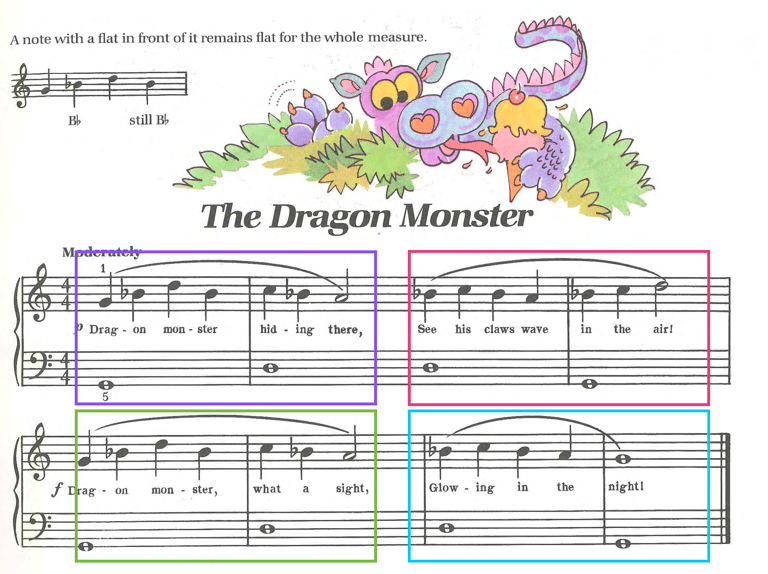

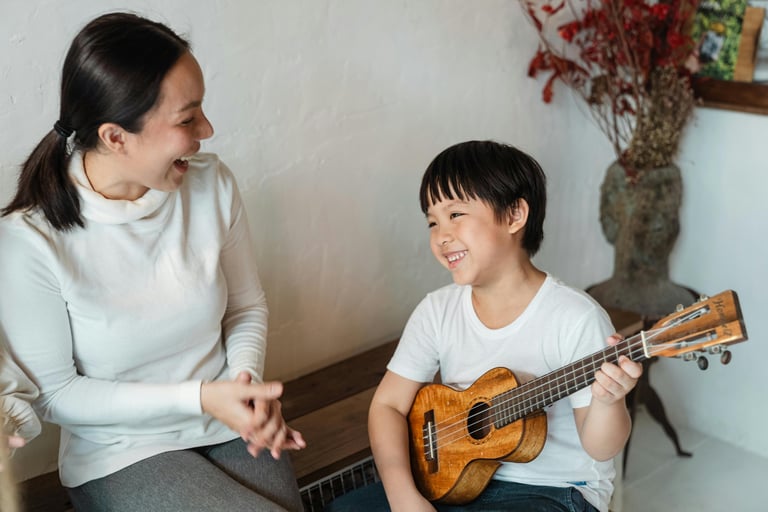

👂 6. See It, Hear It, Feel It
Why It Works: Multi-sensory learning strengthens memory by engaging different parts of the brain. Singing, clapping, and watching professionals play deepen musical understanding.
Music is more than just notes on a page. Students, sing the melody, clap the rhythm, or watch pros play your piece. Parents, why not join in? Clap along, dance around—turn practice into a fun family moment!
Try This: Find a video of your piece on YouTube. How do the pros phrase it? Can you mimic their style?
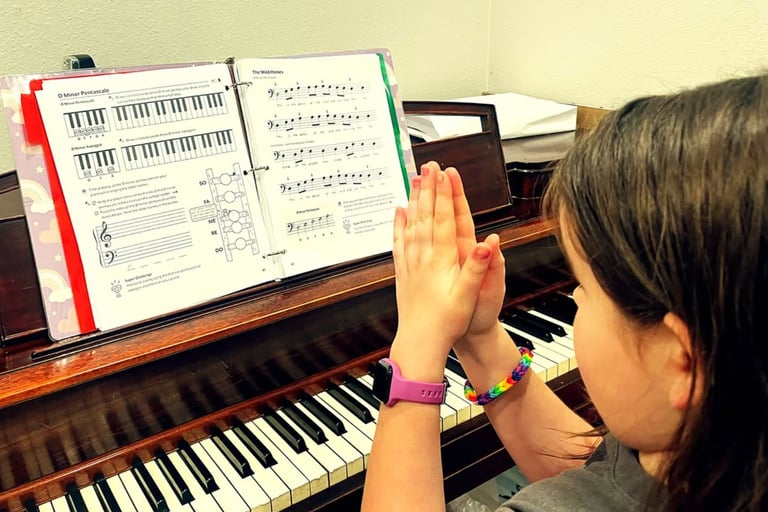

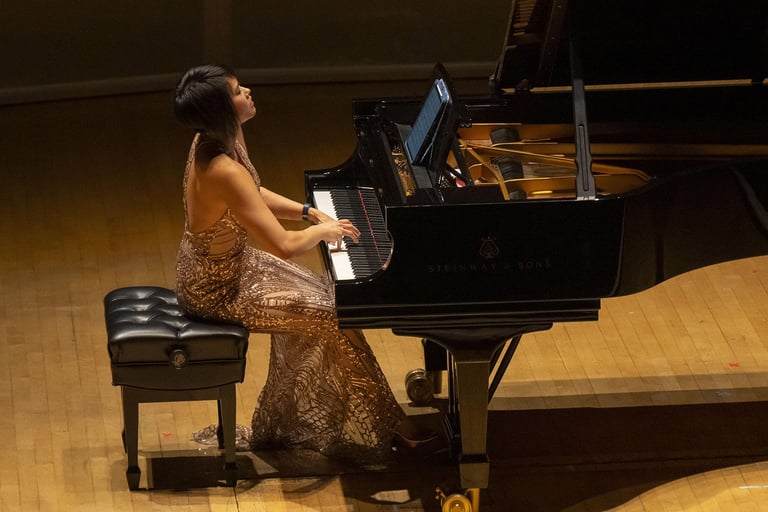

📲 7. Let Tech Be Your Practice Buddy
Why It Works: Interactive technology adds engagement, accountability, and structured feedback, making practice more effective.
Why not make technology work for you? Metronome apps, slow-down software, and practice trackers can jazz up your routine.
Students, challenge yourself to beat last week’s practice minutes. Parents, turn it into a friendly competition—"Can you beat your record?"
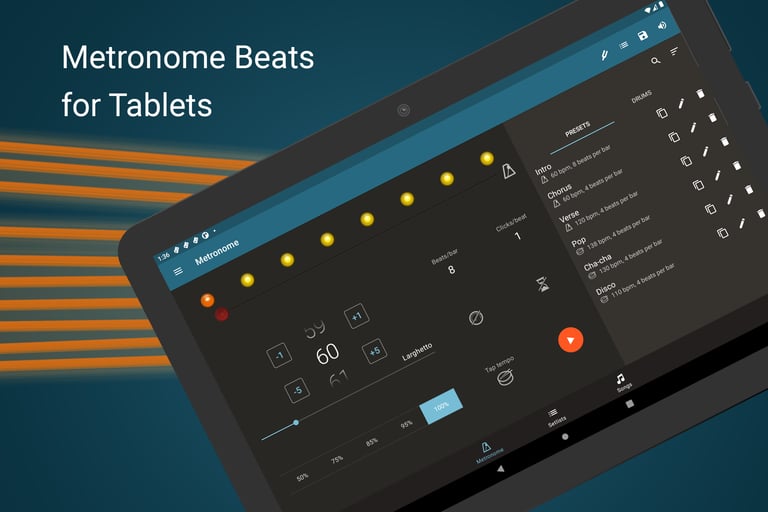

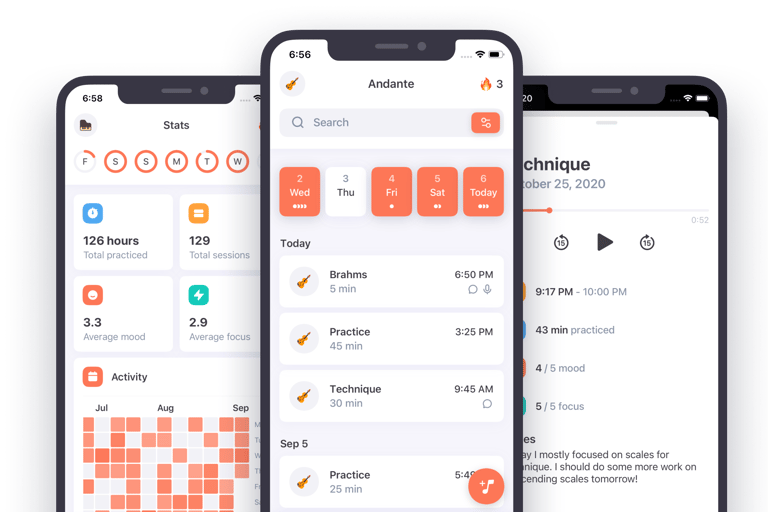

❓ 8. Ask Away—No Question is Too Small
Why It Works: Asking questions helps clarify understanding and prevents practicing mistakes. Active engagement leads to deeper learning.
Stuck on something? Students, speak up! Your teacher’s job is to help you understand. Parents, encourage your child to jot down questions during the week and bring them to their lesson.
Bonus: No one expects you to get it all the first time. Questions = progress.
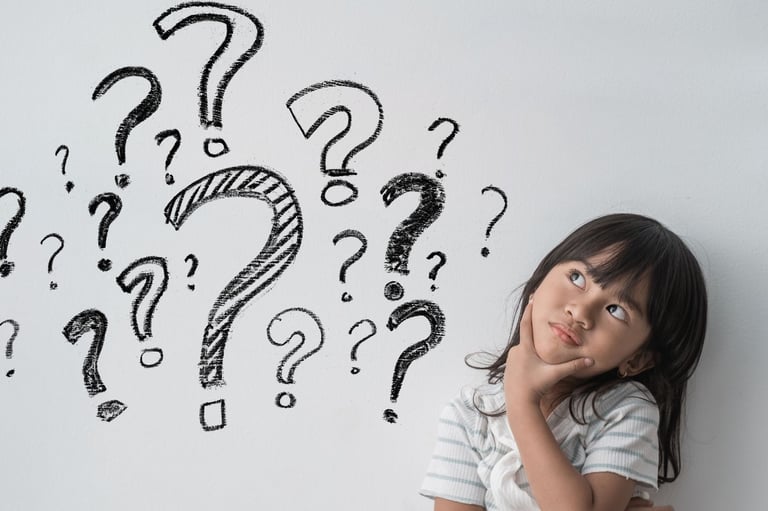

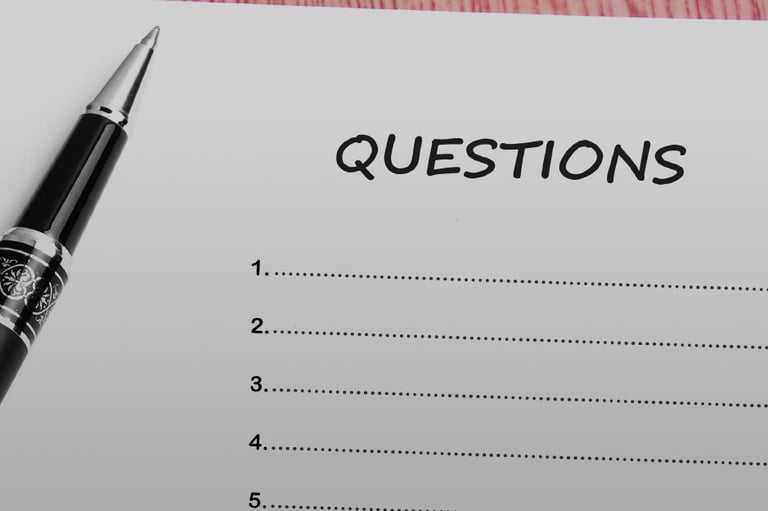

🎤 9. Perform for Anyone (Yes, Even Your Pet!)
Why It Works: Regular performances boost confidence, reduce stage fright, and improve recall under pressure.
Performing isn’t just for recitals. Students, play for your family, friends, or your pet hamster. The more you perform, the more confident you’ll feel.
Parents, create mini concerts at home. Bring out some snacks, gather the family, and give your child a stage. Applause is mandatory (and maybe a standing ovation for good measure)!
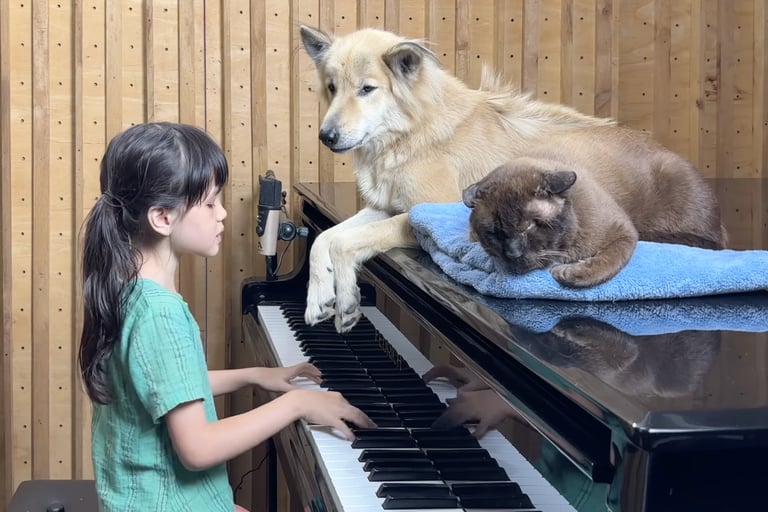

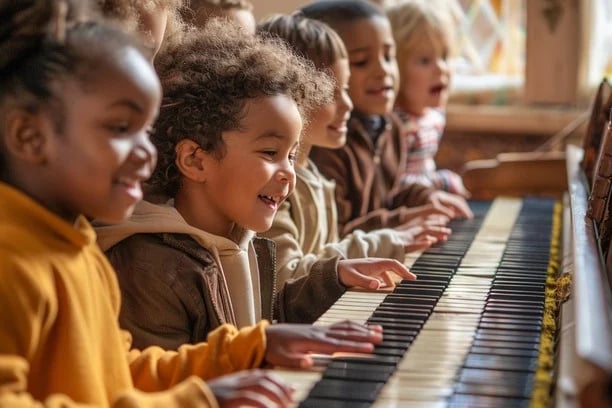

🌟 10. Celebrate Every Step
Why It Works: Positive reinforcement boosts motivation and builds a growth mindset, making students more likely to persist in their learning.
Learning music is like a journey—you wouldn’t climb a mountain without stopping to enjoy the view, right? Students, take pride in small wins. Parents, celebrate with words like, "I can hear how much you’ve improved!" or even a little treat after a tough practice session.
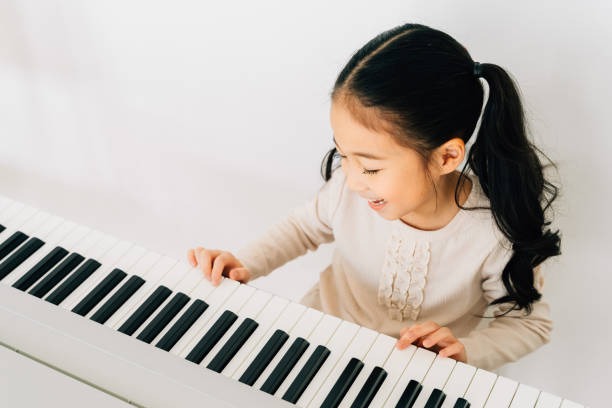

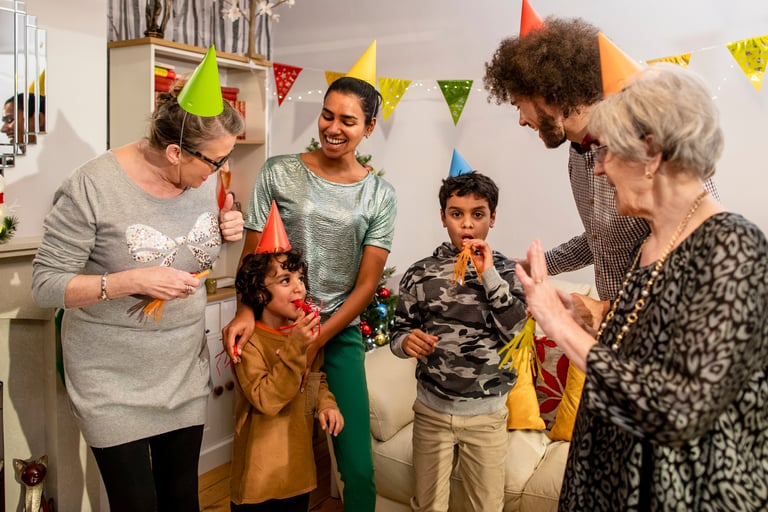

🎶 Final Thoughts: Progress, Not Perfection
Retaining what you learn in music lessons isn’t about being perfect—it’s about showing up, staying curious, and having fun along the way. Students, your effort pays off (promise!). Parents, your support is like rocket fuel for your child’s growth. Together, you’ve got this.
So grab that instrument, press play on that recording, and remember—every note brings you one step closer to making music you love.


Happy practicing! 🎹🥁🎸🎻✨
Share this on:
About The Author


Padmavathy Divakaran is a distinguished pianist, arranger, and music educator, currently serving as the Director of Aum Piano Studio. Formerly the representative for MTB Exams in Tamil Nadu and Karnataka - a globally recognised music education board based in the UK - she has consistently championed excellence in music education. Padmavathy holds a BA (Honours) in Music from Middlesex University, London, and a Diploma in Higher Education – Music from KM College of Music and Technology, Chennai. Her outstanding talent has been recognised through multiple scholarships and awards, including those presented by Dr. A.R. Rahman. As a performer, she has showcased her versatility across classical and contemporary genres, playing with orchestras in both London and Chennai. She was a core member of the Roliwood Seaboard Ensemble, playing a key role in the global launch of the ROLI Seaboard. Her artistry has earned her the honour of performing at prestigious events, including a special performance for Prince William, Simon Cowell, and other notable personalities at The Founders Forum in the UK - a testament to her global reach and artistic impact.